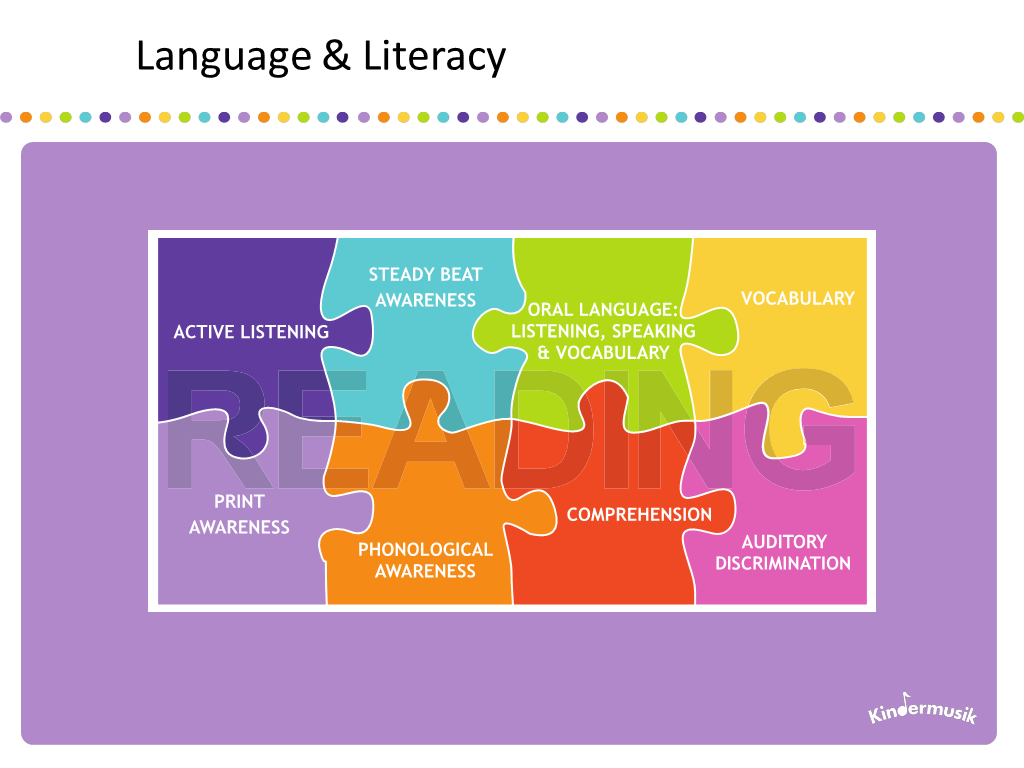We love it when science backs up again and again what music teachers and parents have known for a long time – music and music classes have significant and far-reaching benefits that extend beyond singing, moving, and playing instruments and into areas of brain development, academic advantage, language development, literacy, and more. In particular, new research is highlighting the powerful connection between music and reading.
One long-time researcher and advocate for the benefits of music is Dr. Nina Kraus, Professor of Neurobiology & Physiology, Otolaryngology, and the Hugh Knowles Chair in Audiology at Northwestern University. For your reading pleasure, here are some of the highlights of her studies, both past and current, with links to past Minds on Music posts.
What Science Says about the Music-Literacy Connection
Music is a powerful tool for strengthening and improving reading ability.
Many of the same aspects of sound processing that are deficient in children with language and learning impairments have been found to be strengthened in those who receive music training, and music-based interventions have demonstrated some success in the remediation of reading problems, too. – Dr. Nina Kraus in this Neuroscience article
Children between the ages of 6 and 9 years old who took music lessons could better differentiate speech sounds, which directly relates to language and literacy skills.
Learning to play a musical instrument or to sing can help disadvantaged children strengthen their reading and language skills by improving the way their nervous systems process sounds in a busy environment.
A preschooler’s ability to follow a rhythm and keep a steady beat can accurately predict early language skills and reading skills.
Benefits of music on reading only seen when participants consistently and actively engage in the music making over an extended period of time.
Experience the benefits of music firsthand! Contact your local Kindermusik educator today at www.Kindermusik.com.